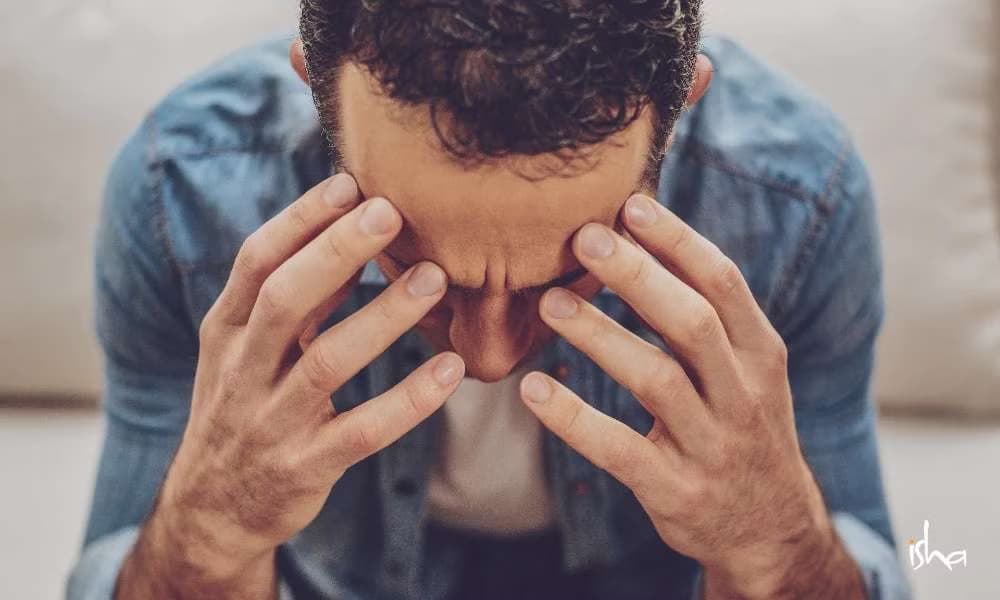We all have stressors. We all have coping mechanisms. And when you are struggling emotionally, these strategies can become habits. You integrate them into your daily routines. Such habits can morph into an addiction if you begin seeking a “reward” from engaging them. For many people, that’s what happens with internet addiction. It becomes their dysfunctional form of coping.
Internet Addiction Disorder (IAD) hasn’t yet been classified as a mental disorder in an official sense. Anecdotally, that designation is gaining steam — with at least 38 percent of Americans considered part of the at-risk population. Other countries see the rising problem too. In fact, in South Korea, IAD has already been declared a national health problem. A 2019 study on internet addiction estimates that approximately 6 per cent of the world population struggles with some form of internet addiction.
Since the pandemic began, it appears dependence on the internet has only increased.
How Do You Know If You’re Addicted to the Internet?
Again, since it’s not an official disorder, therefore it doesn’t have an official set of diagnostic criteria. This, however, does not mean you can’t ask yourself some tough questions, e.g.
- How much time per day do you play video games or shop or look at pornography or gamble or scroll receptively through social media?
- More generally, how much time per day are you online?
- Does your online behavior negatively impact your daily life? Do friends and family comment or complain? Are work, school, or relationships suffering?
- Do you try to cut down online time but never succeed?
- Are you hiding how much time you spend online from others?
A “yes” to even one of these questions is cause for contemplation. A “yes” to several of these questions is cause for deeper concern and support. For starters, it helps to know more.
Internet Addiction: What You Need to Know
1. IAD Comes in Several Forms
- Gaming (video games, etc.)
- Sex-related (pornography, sexting, online affairs)
- Gambling
- Shopping
- Trading stocks
- Dating apps
- Social media
2. You Can Suffer From Withdrawal
It’s important to know that when you try to cut back on internet time, you may suffer some withdrawal symptoms. They may initially present as boredom or frustration. Possibly underlying those feelings are more serious realities like anger, anxiety, and/or depression. A study of Chinese high school students found those with even moderate IAD risk were 2.5 times more likely to experience depression.
3. Physical Symptoms, Too
These can involve some obvious manifestations from so much time staring at a screen such as eye-related issues, back pain, and carpal tunnel syndrome. However, IAD can also be linked to a lack of sleep and a reduction in physical exercise. This combination has been shown to weaken one’s immune system.
4. There Are Ways You Can Help Yourself
It’s important to recognize that you are not at the mercy of this addiction. Key behaviors can improve your situation markedly.
- Set Limits intentionally and often: Take advantage of the built-in timers on your devices to literally block yourself after a certain amount of usage, per app, per day.
- Declutter Your Mind: Your brain needs a break. The constant feed of input is overwhelming and can lead to physical exhaustion, brain fog, and trouble with attention. It is essential that you balance things out with some mental self-help. Meditation is an ideal starting point.
- Face-to-Face Interactions: Being online all day will not prevent loneliness. Over time, it may actually increase it. Counter this trend by scheduling some real-world social time. Meet with friends. Join clubs. Volunteer to help others.
- Exercise: Get moving, stretching, and sweating. Extra points for you if you do so with others — in person.
Seeking Therapy as Treatment For Internet Addiction
In today’s world, it’s not realistic to expect a fully offline life — especially during the COVID pandemic. Thus, you may need some professional guidance to strike the right balance. Meeting with a therapist is an excellent opportunity to explore your behaviors and choices. Root causes will be identified. New strategies can be implemented.
With the help of a skilled counselor, you can limit your online activities to those that are productive and necessary. Your health, your relationships, and your future will all benefit. To take this step toward healing, please read more about anxiety treatment and reach out today to set up a free consultation.





